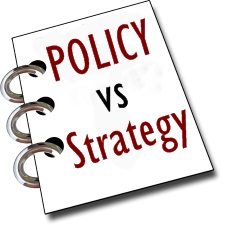Who makes Strategic Decisions? What are the Characteristics of Strategic Decisions?
Table of Contents
- 1 Who makes Strategic Decisions in an Organization?
- 2 Characteristics of Strategic Decisions
- 2.1 1. Concerned with Scope of an Organization’s activity
- 2.2 2. Matching of activities with environment
- 2.3 3.Matching of activities with resource capability
- 2.4 4. Matching of activities with resource base
- 2.5 5. Affects operational decisions
- 2.6 6. Affects nature and magnitude of strategies
- 2.7 7. Affects long-term direction of company
Who makes Strategic Decisions in an Organization?
Most part of the strategic management is done through strategic decision-making. Strategic decision-making is not only crucial but also critical and complex.

Strategic decisions are made by the top level management and by the strategists whereas the operational decisions are made by the managers at lower levels. Strategic decisions are related to the contribution to the organizational objectives and goals significantly. They determine the direction and destination of the organization.
Characteristics of Strategic Decisions
The characters of strategy and strategic decisions are as follows:
1. Concerned with Scope of an Organization’s activity
Strategic decisions are likely to be concerned with the scope of an organization’s activities. The activities vary from company to company. Some companies activities are limited to one product whereas some other organization’s activities include a wide range of products/services. The range of organizational activities are fundamental to strategic decisions.
2. Matching of activities with environment
Strategy is to do with the matching of the activities of an organization to the internal and external environment in which it operates. In fact, strategies are formulated, evaluated and the best among the alternatives based on the environmental threats and opportunity — analysis (ETOP) and strength weakness, opportunities — and threats (SWOT) analysis.
3.Matching of activities with resource capability
Strategy is also to do with the matching of organization’s activities to its resource capability. Strategy analysis and choice is based not only on the opportunities and threats of the environment but also on the resource base of the organization. The resource base includes financial, human, material and informational resources.
4. Matching of activities with resource base
Strategic decisions have major resource implications for an organization. Basically, the organization, while formulating a strategy, should be based on the available resources. The organizations, then, search for the opportunities provided by the environment which would match with the resource base to a greater extent.
5. Affects operational decisions
Strategic decisions affect operational decisions, strategic decisions are the basis for formulating and making operational decisions. The changes in strategic decisions bring corresponding changes in operational decisions.
6. Affects nature and magnitude of strategies
The strategies of organization will also be affected by the values and expectations of the strategic decision-makers in addition to the environmental forces and resources base, for example, the managing director, general managers and other strategists have the power to formulate strategies. The values and expectations of these strategists affect the nature and magnitude of the strategies.
7. Affects long-term direction of company
Strategic decisions are likely to affect the long-term direction of the company. Strategies are formulated to achieve the company’s mission and objectives which determine the long run direction of the company.

